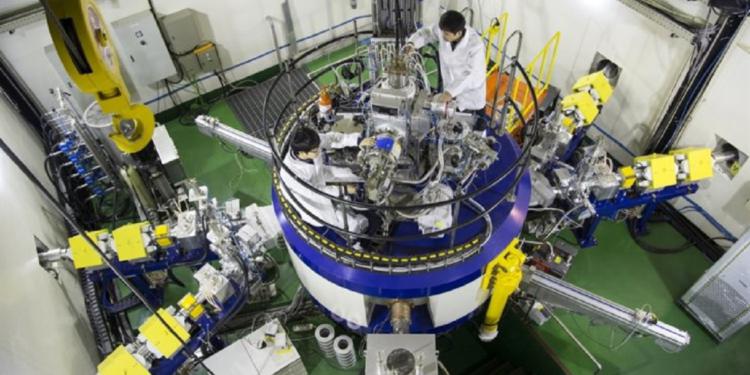The Korea Atomic Energy Research Institute (KAERI) reported on Wednesday that it succeeded in producing a medical isotope that can be simultaneously used for cancer diagnosis and treatment. The government-owned atomic research agency’s Advanced Radiation Technology Institute succeeded in creating isotope copper-67 (Cu-67), by utilizing its RFT-30 cyclotron particle accelerator.
Next-Generation Cancer Treatment
The Cu-67, widely considered as a next-generation radioisotope for cancer treatment, emits both cancer therapeutic beta rays and cancer diagnostic gamma rays. The isotope possesses excellent therapeutic effects with a relatively short “half-life,” meaning its radioactivity dissipates faster than that of other isotopes.
The radioisotope helps antibodies in destroying cancerous tumors when injected with monoclonal antibodies into a patient. KAERI proudly stated that Cu-67 successfully destroyed 80 percent of lung cancer cells during cellular experiments.
A KAERI official said that peptides o antibodies that contain the Cu-67 could carry out both therapy and scanning, unlike PET scans, which are used only for diagnosing cancer. The official added that Cu-67 short half-life of 2.6 days means it is less dangerous than previous diagnostic and treatment measures.
Cu-67 Production
KAERI said that at present, around ten organizations are hoping to acquire the isotope. The institute’s technique can produce a dozen of mCi of Cu-67 enough to supply three institutions at a time. The Chonnam National University Hospital and the Seoul National University Hospital already expressed their interest in the medical radioisotope.
The atomic research institute utilized its RFT-30 cyclotron particle accelerator to develop the medical radioisotope using proton beams. Starting in the second half of 2020, KAERI will supply the Cu-67 to local medical institutions.
However, Cu-67 takes a lot of time to produce because of the complexity of the procedure and the high costs it requires. Lee Kyung-han, president of the Korean Society of Nuclear Medicine, said that the advancement of Cu-67 would contribute to the development of South Korea’s nuclear medicine technology.
Lee also said that the successful production and supply of Cu-67 would launch the country to a new chapter in therapeutics and simultaneous diagnosis.
Wi Myung-hwan said that the establishment of a Cu-67 production system would aid the nation in becoming the leader in next-generation cancer treatments. Wi is the senior vice president of the KAERI’s Advanced Radiation Technology Institute.
KAERI plans to increase the production capacity to hundreds of mCi for export to Asian countries.







